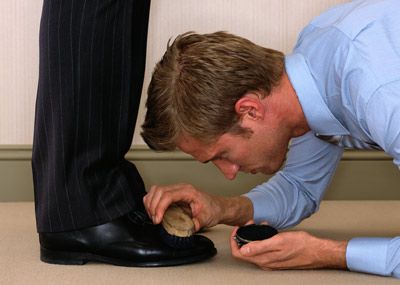You don't have to run for elected office to be immersed in politics. Politics simply refers to the dynamics and struggles for power. Most human relationships involve some kind of back-and-forth play for power. We contend for control at home on a daily basis -- what to watch on TV, what to eat for dinner, where to go on vacation and so on. Around the office, where people with conflicting goals have to get along and careers are at stake, politics thrives.
Whether it's a struggle for control of the thermostat or getting a promotion, offices are notorious political battlegrounds. Even as you sit at your desk minding your own business, politics seeps through cubicle walls and saturates the workplace. According to most experts, no workplace is immune to struggles for power. If we wish to foster good working relationships, get things done or get ahead, experts argue that we should actively and consciously engage in office politics.
Advertisement
Does this mean we have to get our hands dirty to succeed in the business world? Office politics gets a bad name from the people who are most known for playing it. We all know the type -- corrupt, manipulative, insincere sycophants who vie for praise and promotions. Office politics can lend itself to power-hungry brownnosers and vicious behavior. But that doesn't mean you have to make unethical decisions to play the game effectively. Even the bosses we like and respect probably didn't get their promotions based solely on job performance. They also leveraged politics -- they may just be subtle about it.
Some people take to office politics naturally. You know the ones who are irresistibly likeable and don't appear to have a manipulative bone in their bodies. They always seem to get people to gladly cooperate on projects. For other folks, actively playing the politics game is uncomfortable and feels inherently insincere. Regardless of which category you fall into, it helps to learn how office politics works. At least it could clear up common misperceptions about the practice and help you reevaluate your own motivations and tactics.
Advertisement






